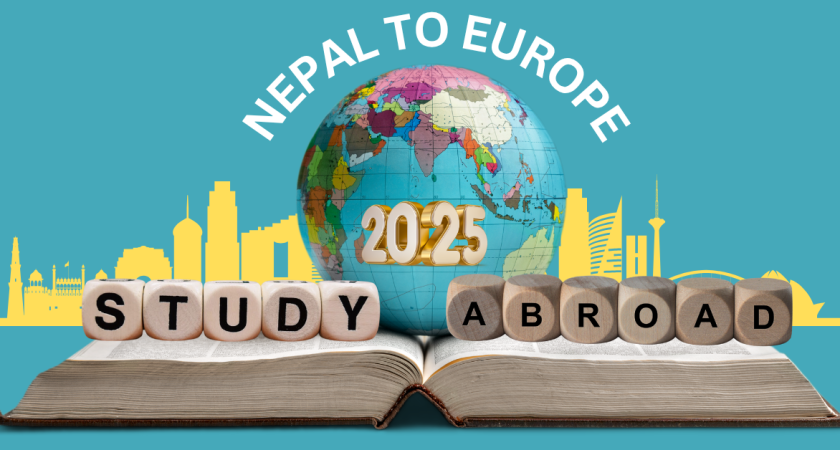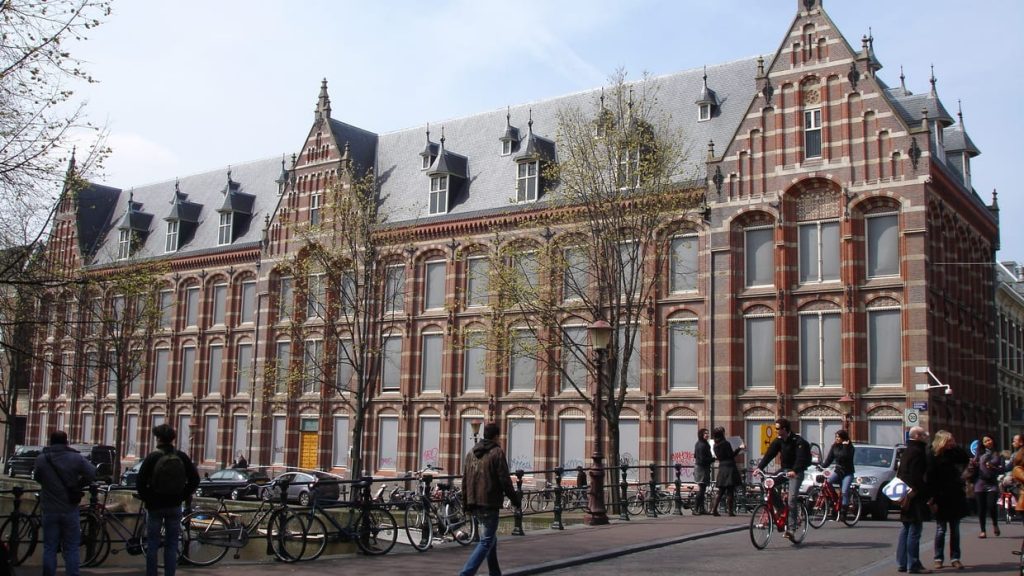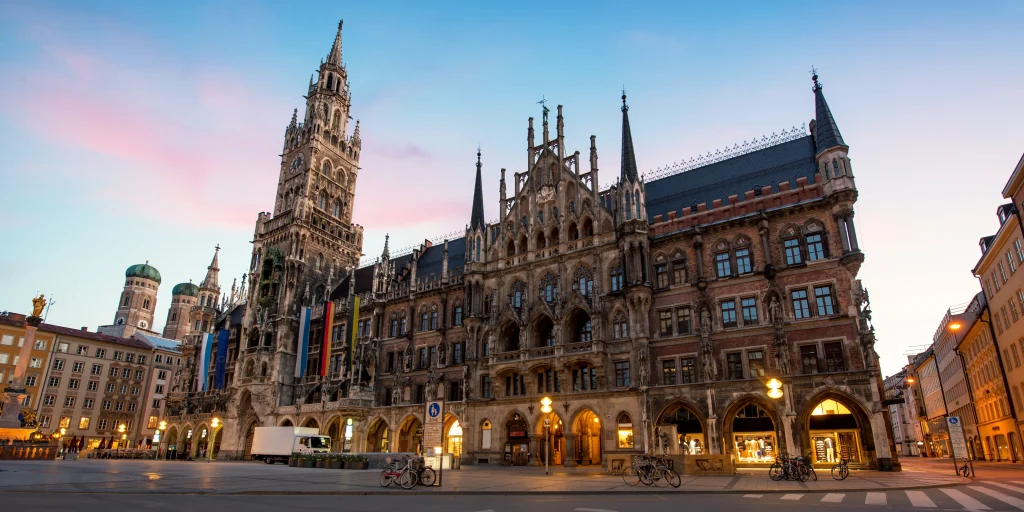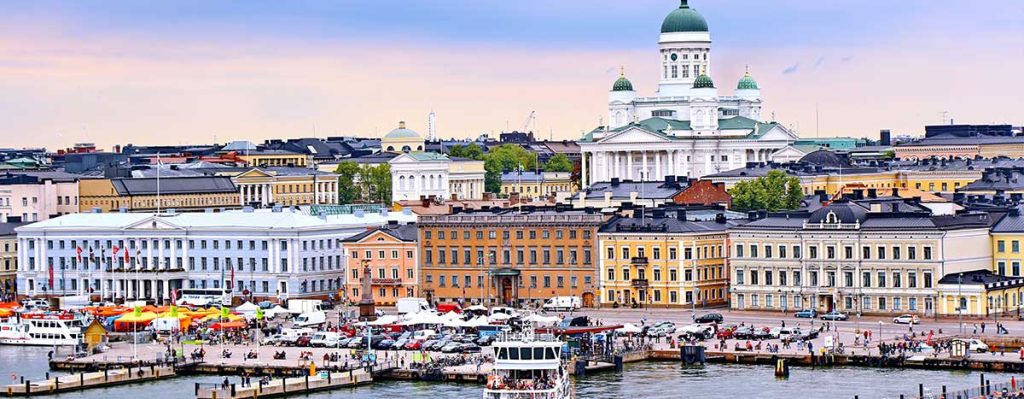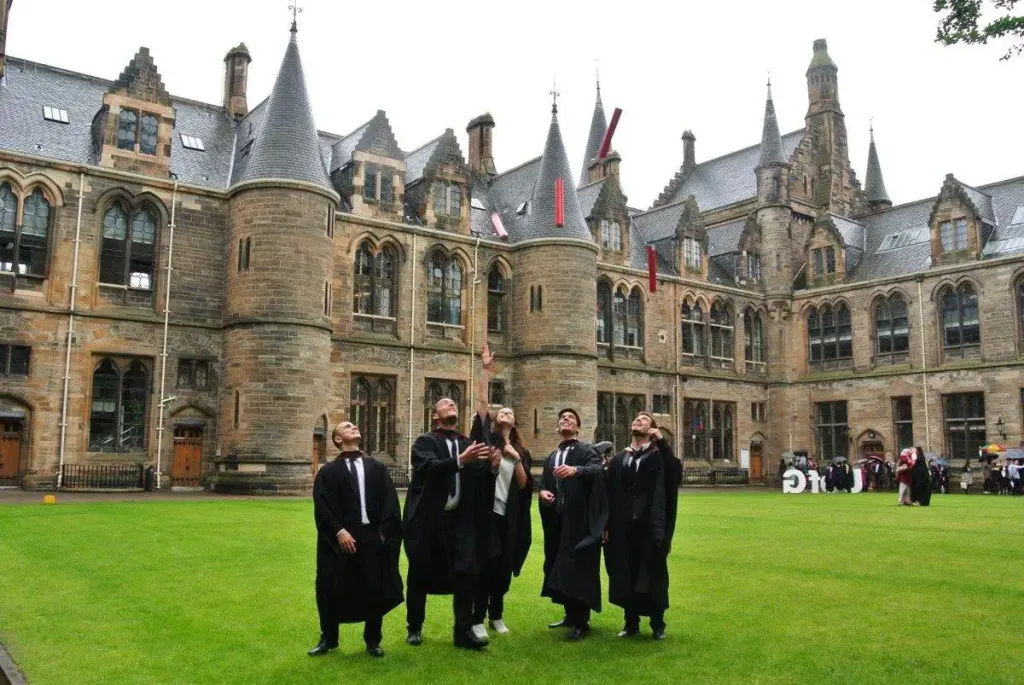Studying abroad is more than just a dream for Nepali students, it is a chance to access world-class education, global exposure, better career opportunities and experience new cultures. Japan and South Korea have traditionally been popular study abroad destinations for Nepali students due to their close geographical proximity and cultural appeal.
However, there’s a noticeable shift in preference: Europe is rising as the new study abroad hotspot for Nepalese students. With its affordable education, wide range of English-taught programs, generous scholarships, and inclusive culture, Europe is slowly but surely becoming the top contender.
So, what’s driving this change? And how does study in Europe really compare to Japan and South Korea in terms of education, lifestyle, and opportunities for Nepalese students? In this blog, we are going to explore just that.
EUROPE’S RISE AS A TOP STUDY ABROAD DESTINATION
Europe is gaining traction as a study abroad destination. Over 1.5 million international students are currently studying in Europe. This shift is driven by various factors including affordability, interdisciplinary learning and enhanced career opportunities.
Europe: The New Favourite for International Students
European universities offer an array of programs across diverse disciplines. Many European countries offer programs in English, especially at the Master’s level. Europe has become a magnet for international students, one of the major reasons being the availability of programs in English which is appealing for non- English -speaking countries like Nepal
Compared to countries like the US, UK, and Australia, European universities offer more affordable options. Countries like Germany, France, the Netherlands, Finland, and Italy offer top-tier education at low or no tuition fees.
| Country | Avg. Tuition (€/year) | Avg. Living Cost (€/month) | Post-Study Work Rights |
| Germany | €0 – €1,500 | €800 – €1,200 | 18 months |
| France | €170 – €3,000 | €700 – €1,000 | 12 months |
| Netherlands | €6,000 – €15,000 | €900 – €1,400 | 12 months |
| Finland | €0 – €13,000 | €700 – €1,100 | 12 months |
| Italy | €1,000 – €4,000 | €600 – €1,000 | 12 months |
Europe has now become one the best countries to study abroad because of its:
1. High-quality education and recognized institutions
2. Affordability and Scholarship options
3. Diverse range of programs and flexibility
4. Enhanced post-study work opportunities
HOW EUROPE COMPARES WITH JAPAN AND SOUTH KOREA
Although each country has unique advantages to offer when it comes to studying abroad, a rising number of students – especially from Nepal, are opting for studying in Europe. There are several reasons for it, some of which are:
Language barrier:
Most undergraduate and many graduate programs in Japan/South Korea are in the native language which limits the options of international students. In this situation, diverse courses offered by European universities in English draws students to apply for higher education there.
Cost of living:
Living costs and tuition fees are usually higher in cities like Tokyo and Seoul while fees vary across Europe. Countries like Germany and Norway offer low or free of cost education for local as well as international students.
Part-time work restrictions:
European countries allow international students to work part time and also offer post-study work visas. This allows students to build networks and gain professional experience. Students in Japan/Korea have stricter work limits and lower hourly wages which makes long term career planning difficult.
Post-study work options:
Many European countries post-study stay back periods which makes it easier for internationals to secure jobs and apply for permanent residency in future. Even though Japan and South Korea have high demand for candidates, they may struggle with language and cultural barriers.
COMPARISON BETWEEN STUDY IN EUROPE AND STUDY IN JAPAN/SOUTH KOREA
| Factor | Europe | Japan | South Korea |
| Language of Instruction | Mostly English | Mostly Japanese (few in English) | Mostly Korean (few in English) |
| Tuition Fees | Low or free (public universities) | $5,000 – $12,000/year | $4,000 – $10,000/year |
| Post-Study Work Rights | 12 – 18 months | Limited (requires sponsorship) | Limited and competitive |
| Scholarships | Abundant EU-funded options | Government/private only | Mostly merit-based, limited |
| Cost of Living | Moderate | High | High |
NEPALESE STUDENTS – A SHIFT FROM ASIA TO EUROPE
Over the years a shift from study in Japan/South Korea to study in Europe among Nepalese has been noticed. In the 2010s, Japan and South Korea were top destinations for Nepalese students due geographical proximity, scholarships and strong bilateral ties.
This shift is fuelled by language barriers in Japan/Korea which limits academic and social life of international students, difficulty in accessing part-time work due to visa restrictions, complex residency and employment paths post-graduation, high cost of living in cities like Tokyo and Seoul and lack of exposure to Western/global work culture.
Why is Europe now the Top Choice for Nepalese Students?
- Many EU countries like Germany and Norway offer free or low-cost education even for non-EU students.
- No language barrier in many programs – over 7,000+ courses in English across Europe.
- Favourable post-study work rights: Europe offers generous stay-back options, Germany (18 months), Netherlands (1 year), etc. which allows students to gain hands-on experience.
- Scholarships such as Erasmus+, DAAD, Eiffel Excellence, Holland Scholarship ease financial burdens. According to Erasmus+ data, participation from South Asia (especially Nepal and India) has seen double-digit growth since 2020.
- Easier to migrate permanently or continue to a PhD.
- Students from Nepal now see Europe as a gateway to global careers.
TOP EUROPEAN UNIVERSITIES TO WATCH
Many European universities are globally recognised for their research based teaching and high academic standards that appeal to international students. Europe has become one of the best countries to study abroad with its esteemed institutions and ever growing range of study and career options.
| University | Country | QS 2025 Rank |
| University of Amsterdam | Netherlands | #55 |
| LMU Munich | Germany | #60 |
| Sorbonne University | France | #59 |
| University of Helsinki | Finland | #102 |
| University of Bologna | Italy | #123 |
These universities offer fully English-taught Master’s (and increasingly, Bachelor’s) programs making it easier for non-English speaking students.
Our experienced Study Abroad Consultants are helping students make the move from Nepal to Europe hassle-free.
SCHOLARSHIPS AND AFFORDABILITY
One of the primary concerns of every student planning to study abroad is the cost of living and tuition fees. Several universities offer free or low-cost courses and there are numerous scholarship programs for international students to lower their financial burden.
| SCHOLARSHIP | COVERAGE |
| ERASMUS | Tuition, Travel, Living expenses, Insurance |
| DAAD Scholarships | Monthly stipend, tuition, travel, health insurance |
| Eiffel Excellence Scholarship- France | Monthly stipend (~€1,181/month for Master’s), international travel, insurance |
| Holland (NL) Scholarship – Netherlands | €5,000 (first year only) |
| Swedish Institute (SI) Scholarship – Sweden | Tuition, monthly stipend, insurance, travel |
Students must maintain a strong academic record and profile in order to secure a scholarship. While applying to universities, candidates must check university-specific scholarships as many of them offer their own financial aid.
In comparison, Japan/South Korea have only a handful of major scholarship programs. These limited options are highly competitive making it challenging for students to acquire. For Nepalese students, Europe currently offers broader and more flexible scholarship programs.
MAKING THE SMARTER CHOICE FOR 2025 AND BEYOND
Europe has become a top choice for Nepalese due to affordability, diversity, opportunity, and cultural richness. The students are thriving not only academically but also through internships, part-time jobs and cultural experiences. Europe has become a promising destination for academics and students must explore all the available options and choose what is best for their future.
Written By HEMANGI KEDIA
